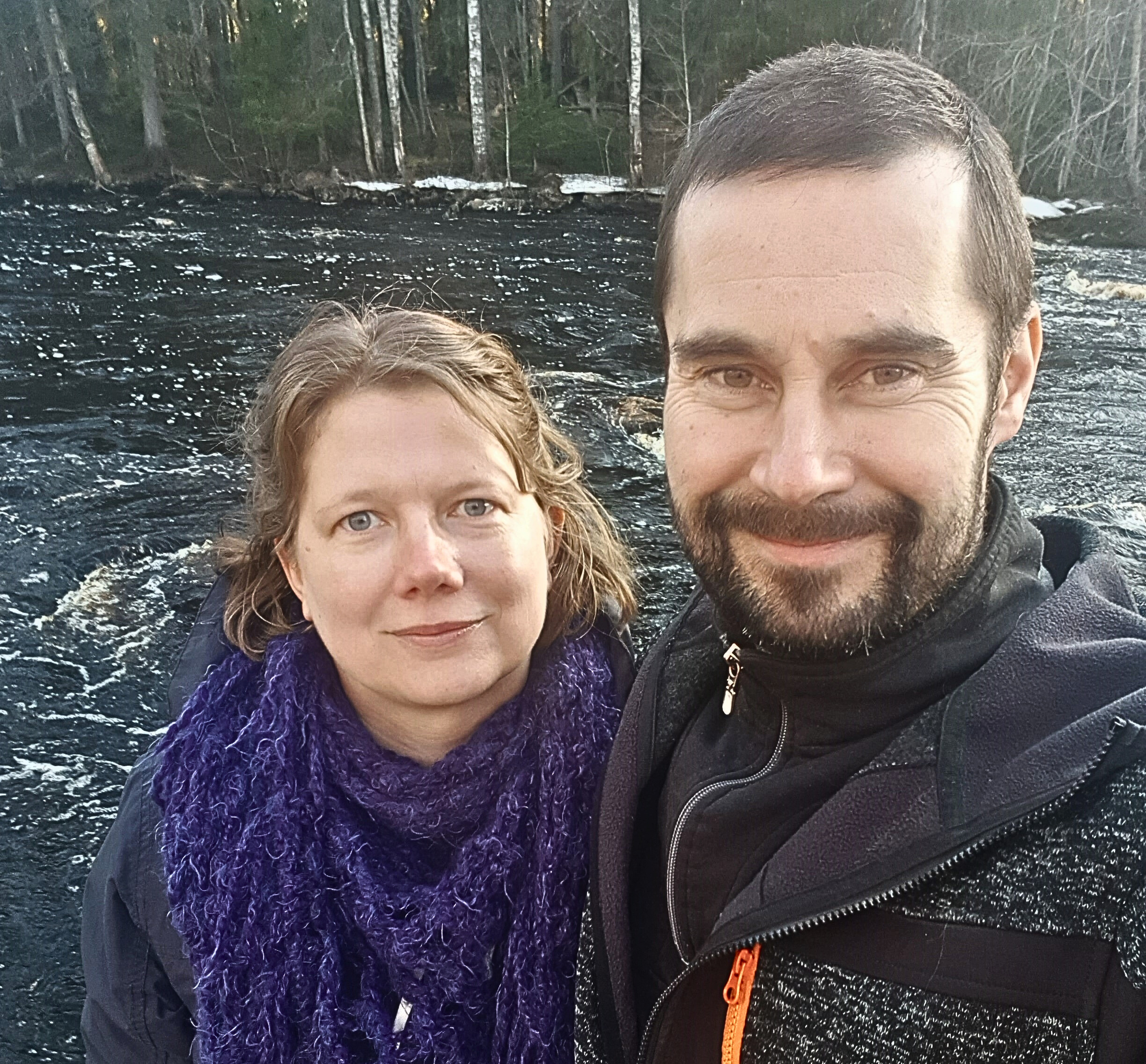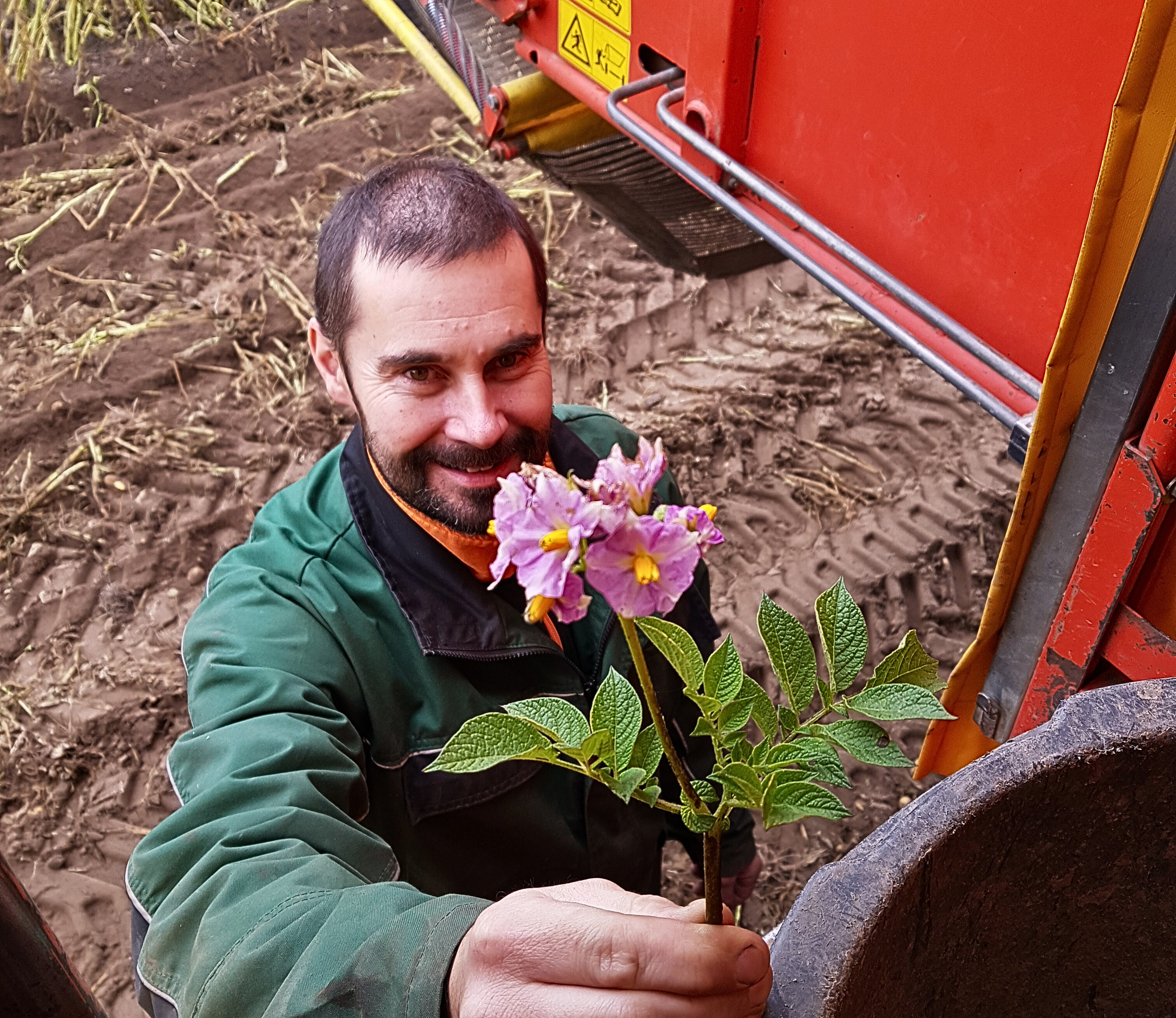Even a small business plays an important role in its local community
At Paahka Oy, located in Himanka, Kalajoki, climate-smart and responsible business practices include local production, sustainable economic management and business operations as part of the local village community. One of Hanne and Pekka Kluukeri’s key insights has been learning to articulate the company’s responsible practices. But what exactly does a small business sustainability policy consist of?

Dehydrated prepared foods and topinambur crisps for better everyday life and indulgence
The founders of Paahka Oy, Hanne and Pekka Kluukeri, believe in healthy and locally produced food. It is important to them that the food ingredients can be traced all the way back to the field. In fact, most of the ingredients used in their products come from their own or from the neighbouring farmer’s fields – and the processing and packaging of the products takes place just a stone’s throw away from the farm.

Keeping transport chains as short as possible, minimising losses and accurately sorting wastes are key aspects of climate smartness, even for small companies. At Paahka, the production of dry products is an excellent way of reducing agricultural waste, as the production process can utilise also second-class ingredients that are not suitable for sale as fresh products due to their size or appearance. For Paahka, recycling means not only sorting waste, but also, for example, buying second-hand machinery and other equipment.
However, in addition to the environmental aspects, there’s much more to responsibility. Hanne and Pekka Kluukeri have considered responsibility from many angles. Shortly after setting up their business in 2022, the couple attended the Viva responsibility training course, which gave them practical tools for assessing and communicating responsibility in their business operations. For example, it was eye-opening for them to understand that financial responsibility is something broader than one's own business operations.
– Through financial responsibility, we are accountable to others besides ourselves. It is not just the necessary evil of having to prepare and submit the annual final accounts, but when the business is up and running, we are able to contribute to social activities in our area and cooperate with other companies, Hanne explains.
Ensuring the financial viability of the business operations is strongly linked to other aspects of corporate responsibility. Micro-entrepreneurs usually have a strong passion for their core business and financial responsibilities may feel tedious and overwhelming. However, a financially healthy business allows an entrepreneur to share the good with the wider community by not having to live hand to mouth all the time.

In Paahka's case, taking care of the financial sustainability has enabled, for example, a value-based choice to use locally produced ingredients whenever possible - despite the fact that their price may be slightly higher for the entrepreneur. Local sourcing of ingredients increases the regional impact of the company's activities by supporting employment and strengthening the local economy.
A farmers' community creates a strong basis for enterprises
Doing good in your local community and acting responsibly as part of the local business ecosystem is part of the social responsibility of any business, even a small one. Hanne Kluukeri praises in particular the local farming community in Himanka, which provides a strong basis for the village’s business activities:
– Here at Himanka we have a really good team spirit among the farmers. If we or anyone else needs help, it is asked for and given, whatever the problem is. There is a lot of machinery-related cooperation on the cultivation side, as well as social cooperation, for example in terms of sharing know-how with each other.
Working together and sharing knowledge and tips helps the entrepreneurs in the area in many ways, but also creates a positive atmosphere for the whole village community. Examples of this include charity stunts and events organised by the entrepreneurs.

– These are the additional things we can contribute to when the financial underpinnings of the company are in order, Hanne explains.
Hanne and Pekka Kluukeri have also developed an active partnership with educational institutions and hosted groups of students from different educational levels. They have also donated their products to wilderness guide student's hikes to get feedback on the suitability of their products as excursion foods.
For an entrepreneur considering the climate smartness, sustainability and responsibility of their own business, the Kluukeri's have a clear message: responsibility is something that every company should discuss with a person outside the company. Many Finnish entrepreneurs do not even realise how responsible their businesses already are. For Paahka's entrepreneurial couple, the most important lesson in their own responsibility journey has been to learn how to put responsibility in their business operations into words and how to communicate it to their customers.
– The word 'responsibility' should not be feared. It is not a negative word, and thinking about these things does not necessarily mean extra work. Instead, it often improves our understanding of the way we already work, Hanne Kluukeri concludes.
The publication is the first of ClimateFood project's climate-smart success stories in the food chain. Case examples includes stories both from Finland and from Sweden.








